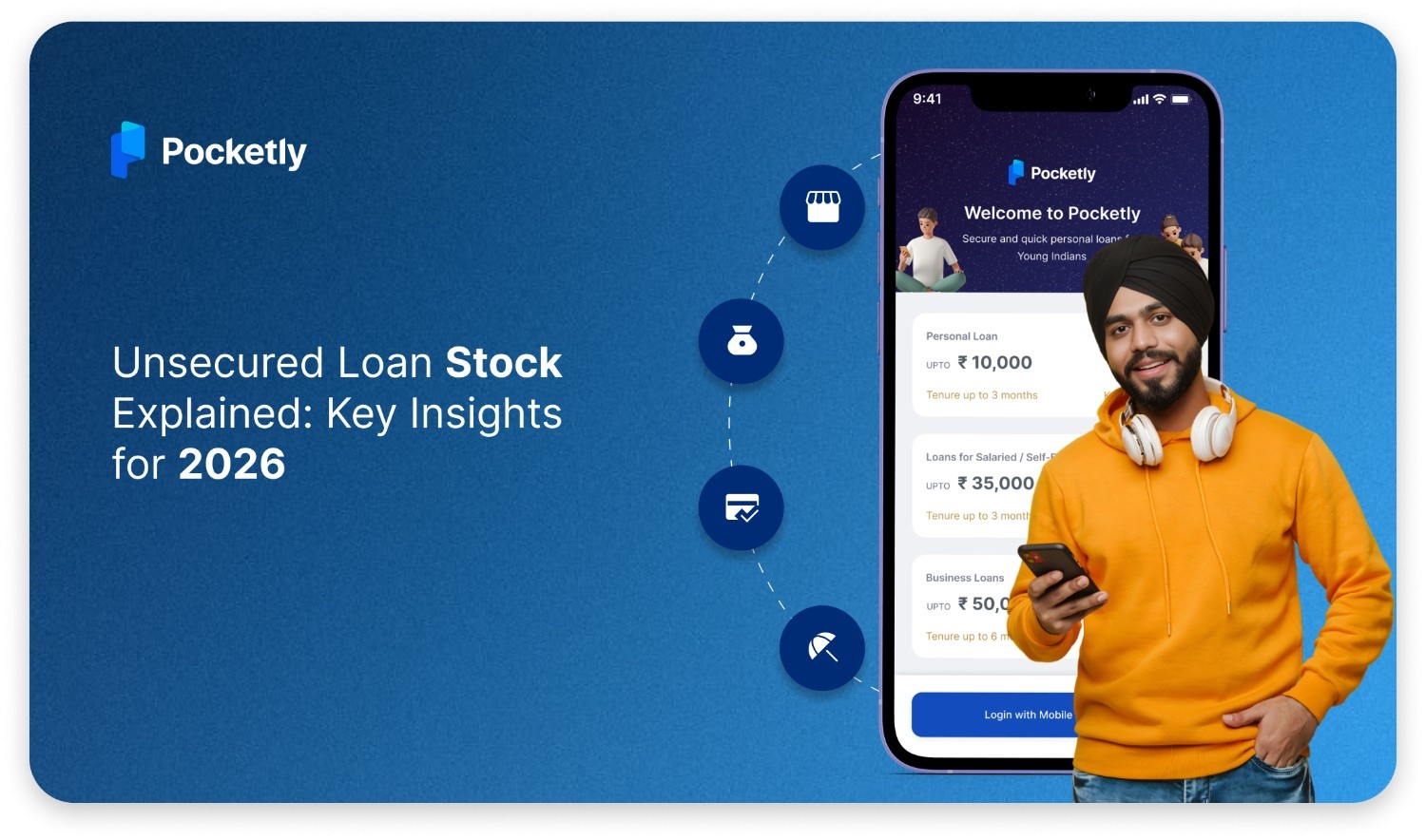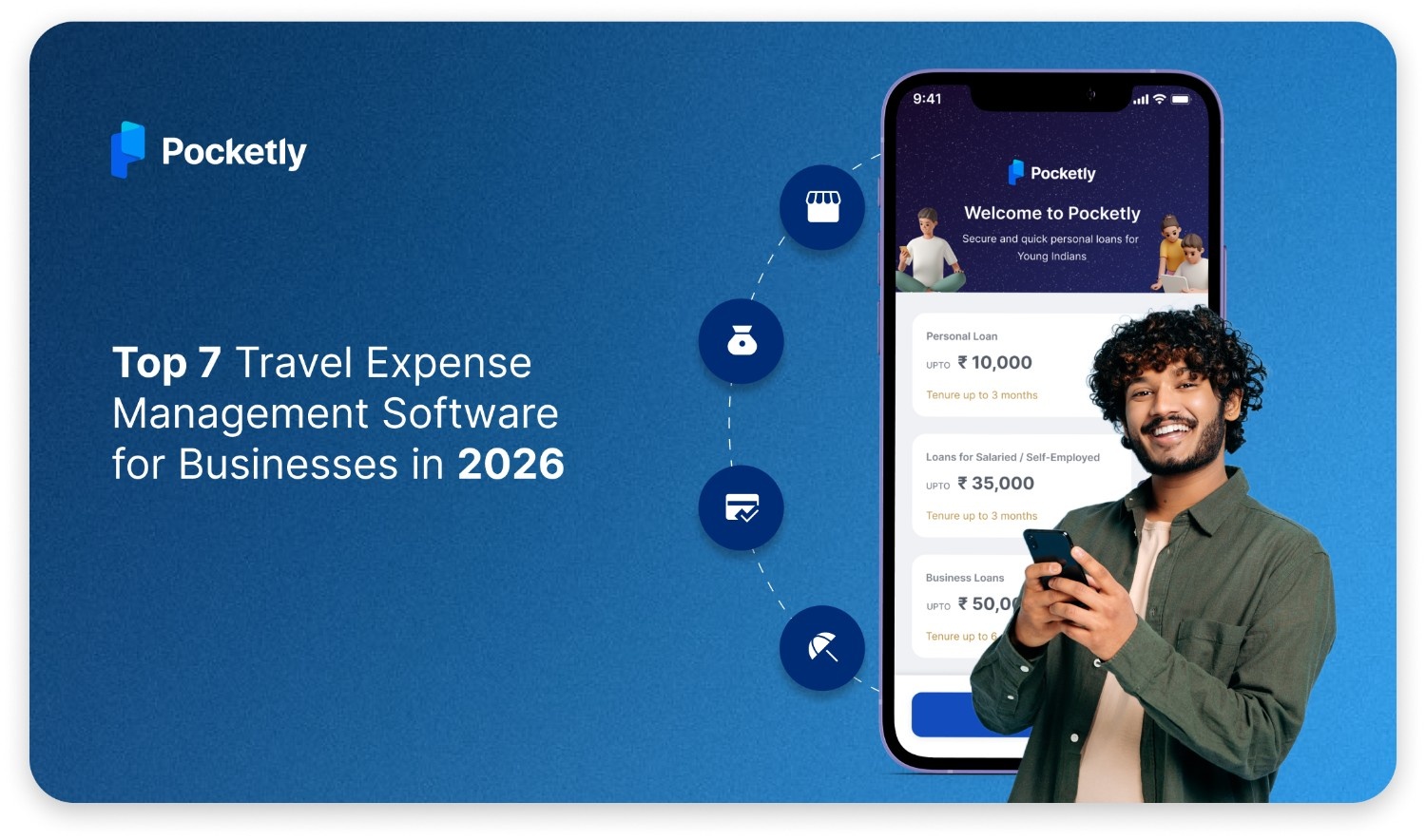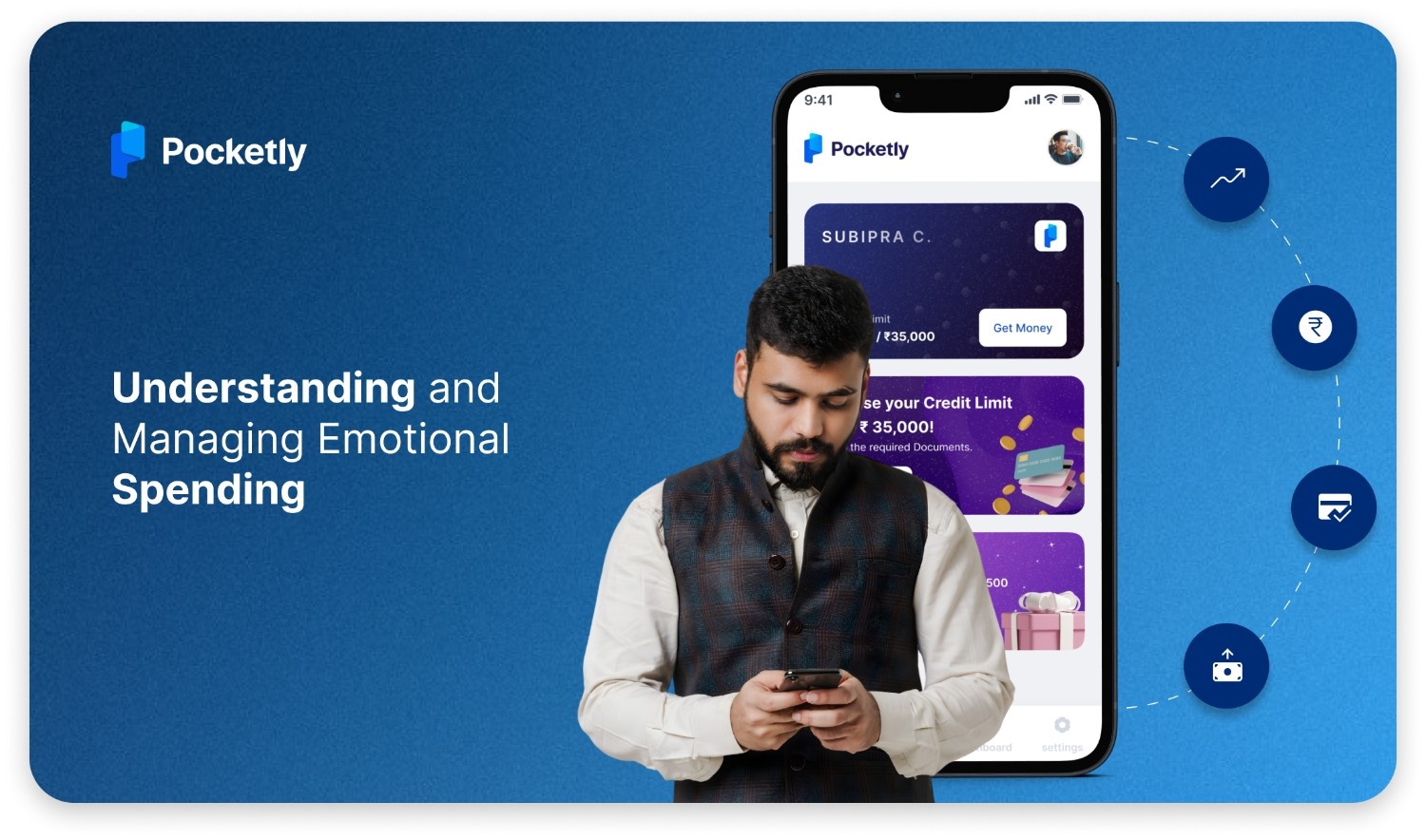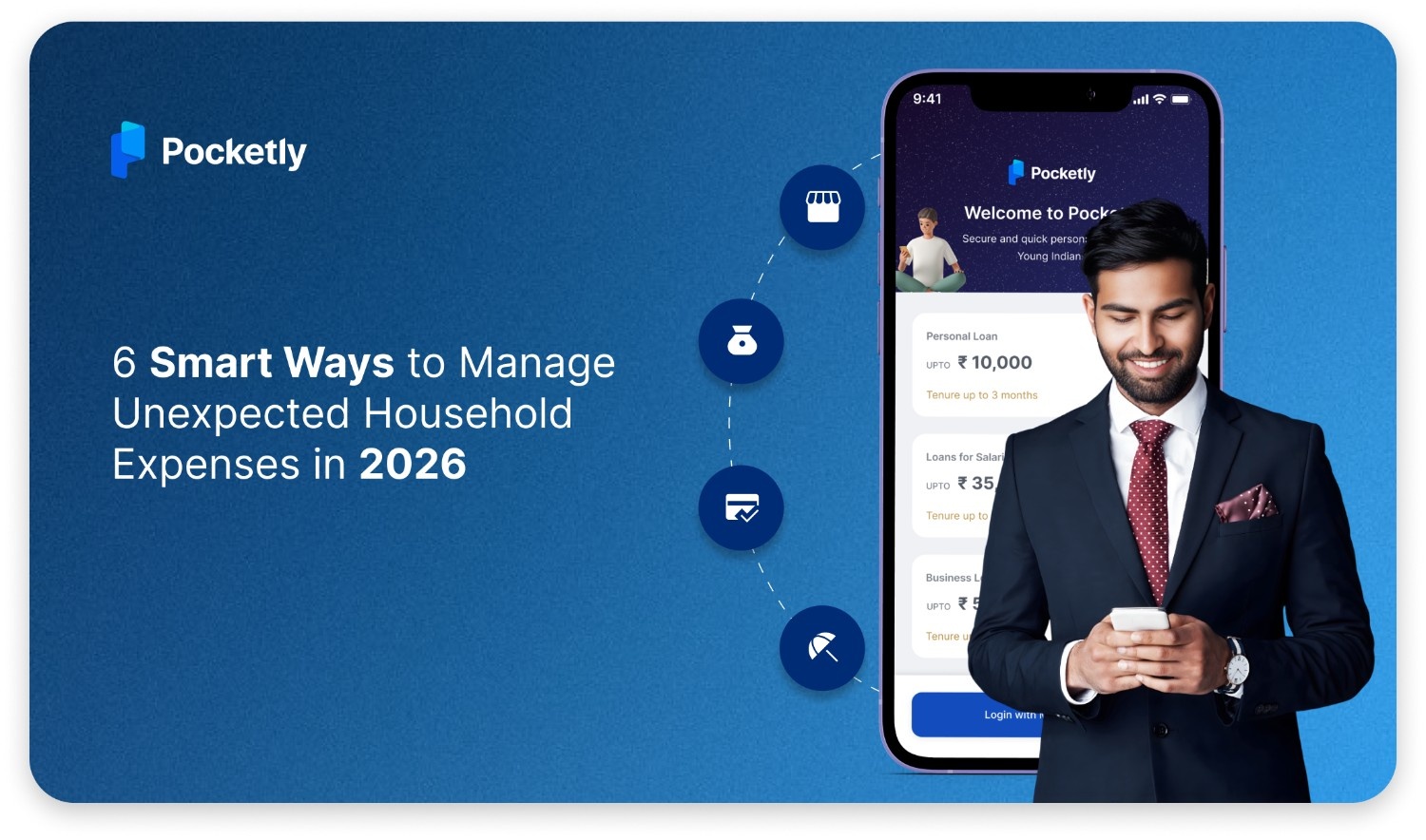Before accessing any financial service—whether it’s opening a bank account, applying for a loan, or making investments you need to verify your identity, this process, known as KYC (Know Your Customer), is a crucial security measure that prevents fraud and ensures compliance with financial regulations.
KYC is a mandatory process used by banks, NBFCs, and digital platforms to verify the identity and address of customers before offering financial services. It helps protect against identity theft, money laundering, and unauthorised transactions, making financial transactions secure and trustworthy.
In this guide, we’ll break down the different types of KYC, how they work, and why they are essential for both individuals and businesses.
What is KYC?
KYC (Know Your Customer) is a mandatory identity verification process used by banks, financial institutions, and digital platforms to confirm your identity, address, and financial background. Whether you're about to open a bank account, applying for a loan, or using financial services, KYC ensures that you are a legitimate customer and not involved in fraudulent activities.
KYC helps businesses and financial institutions prevent money laundering, identity theft, and unauthorised transactions while ensuring a secure and transparent financial system. By completing your KYC verification, you gain access to various banking and financial services without restrictions.
Key Features of KYC
- Identity Verification – Confirms your identity using official government-issued documents such as Aadhaar, PAN, or passport.
- Address Proof Validation – This ensures that your residential details are very accurate and match the documents provided.
- Regulatory Compliance – Helps financial institutions follow RBI and government-mandated guidelines for secure transactions.
- Fraud Prevention – Protects against identity theft, unauthorised transactions, and financial crimes like money laundering.
- Multi-Level Verification – Includes various verification methods such as online e-KYC, in-person KYC, and video KYC.
- One-Time Process – Once completed, your KYC details remain valid, reducing the need for repeated verification for different financial services.
1. Benefits for Individuals
- Faster Loan Approvals: KYC verification speeds up the loan process, making funds available quickly.
- Enhanced Security: Protects personal identity by preventing fraud and identity theft.
- Improved Access to Financial Services: Necessary for opening bank accounts, applying for loans, and using digital wallets.
- Regulatory Compliance: Ensures individuals meet banking and financial guidelines, preventing service disruptions.
- Seamless Digital Transactions: Allows secure and hassle-free online banking, investments, and money transfers.
- Increased Credit Opportunities: This helps individuals build financial credibility, improving their chances of getting loans with better terms.
- Prevention of Misuse: Reducing the risk of unauthorised account usage or fraudulent activities.
- Easier Account Recovery: This simplifies the process of recovering lost or forgotten account credentials.
2. Benefits of KYC for Businesses
- Fraud Prevention: Ensures customers provide genuine information, reducing the risk of financial fraud.
- Regulatory Compliance: Helps businesses meet government regulations and avoid legal penalties.
- Better Customer Trust: It builds a trustworthy business environment by verifying customer identities.
- Reduced Risk of Financial Crimes: Prevents money laundering, illegal transactions, and unauthorised activities.
- Streamlined Onboarding Process: This simplifies customer registration, making account creation faster and more efficient.
- Enhanced Business Security: Protects the company from fraudulent transactions and potential financial losses.
- Improved Customer Relationship Management: Enables businesses to offer personalised financial services based on verified customer data.
- Lower Operational Risks: This reduces the chances of dealing with unverified or suspicious transactions.
- Stronger Business Reputation: Compliance with KYC regulations enhances credibility with customers, partners, and regulatory authorities.
By completing your KYC verification, you gain access to a secure, compliant, and efficient financial system, ensuring smooth and safe transactions.
Why KYC is Essential
If you’ve ever applied for a bank account, loan, or digital wallet, you’ve likely been asked to complete KYC verification. But why is it so important? KYC (Know Your Customer) is not just a formality—it’s a crucial step that ensures financial security, protects against fraud, and helps institutions comply with government regulations.
Here’s why KYC is essential for you:
- Legal Requirement Under Financial Regulations – The Reserve Bank of India (RBI) and other regulatory bodies mandate KYC compliance for all financial institutions to prevent fraud, illegal transactions, and money laundering. Without it, you can’t access banking, credit, or investment services.
- Ensures Transparency in Financial Transactions – KYC eliminates the risks of fake identities, fraudsters, and unauthorised transactions, ensuring fair and legal financial dealings.
- Enhances Your Financial Profile – A verified KYC status can improve your credibility, making it easier to get higher credit limits, lower interest rates, and pre-approved loans. Financial institutions trust KYC-verified customers more than those without a proper verification record.
- Protects Against Unintentional Fraud and Identity Misuse – Sometimes, your details can be used without your knowledge to take loans or make unauthorised transactions. With KYC verification, your identity is secured, reducing the risks of misuse.
- Speeds Up Digital and Instant Loan Approvals – If your KYC is already verified, you don’t have to go through lengthy documentation when applying for a loan, credit card, or investment account. Many fintech platforms offer instant digital KYC verification, making transactions seamless and hassle-free.
- Required for Long-Term Financial Planning – Whether you want to buy a house, start a business, or plan for retirement, all major financial decisions require verified KYC documentation. Without it, your financial journey can face delays, restrictions, or outright denials.
Without KYC, financial transactions would be risky and unreliable. By completing your KYC verification, you not only gain access to essential banking and credit services but also ensure your financial security and credibility.
Types of KYC Processes
KYC verification is conducted in different ways based on customer convenience, security requirements, and financial institution policies. While the primary goal remains the same—to verify identity and prevent fraud—different types of KYC processes cater to both online and offline users. Some methods offer instant verification, while others require physical document submission.
Here are the major types of KYC processes, how they work, and their key purposes:
1. Aadhaar-Based KYC
How It Works:
- Provide Aadhaar Number – You enter your 12-digit Aadhaar number while registering on a financial platform, banking service, or mobile wallet.
- Receive OTP for Verification – A One-Time Password (OTP) is sent to your mobile number linked to Aadhaar for identity verification.
- Enter OTP to Complete Authentication – After entering the OTP, your Aadhaar details (name, DOB, address) are auto-fetched, and KYC is completed instantly.
- e-KYC Data Verification – The financial institution cross-checks the retrieved Aadhaar details with their records to confirm legitimacy.
Purpose: Used for quick online verification without the need for physical document submission.
Example: Mutual fund platforms allow users to complete Aadhaar-based KYC instantly by entering an OTP linked to their Aadhaar number.
2. Video-Based KYC
How It Works:
- Customers schedule a video call with a bank or financial institution representative.
- During the call, they displayed their original identity documents for verification.
- The video session is recorded and reviewed to confirm authenticity.
Purpose: Enables remote KYC verification, eliminating the need to visit a branch physically.
Example: Kotak Mahindra Bank and ICICI Bank use video KYC to allow customers to open digital savings accounts without visiting a branch.
3. In-Person KYC (IPV - In-Person Verification)
How It Works:
- Customers need to visit a bank branch, lender’s office, or financial institution with their original documents.
- A representative verifies the identity and addresses proofs in person.
- The institution records and stores the verified documents.
Purpose: This method is often required for high-value transactions, large loan applications, and enhanced financial security compliance.
Example: HDFC and SBI banks require customers to visit the branch for physical verification before issuing large-value home loans or business loans.
4. E-KYC (Electronic KYC)
How It Works:
- Customers need to verify their details using Aadhaar-linked biometric authentication or digital signatures.
- Banks and financial institutions access Aadhaar-linked data from UIDAI (Unique Identification Authority of India) to confirm the customer's identity.
Purpose: Ideal for fast online account openings, digital banking services, and mobile wallet verifications.
Example: Paytm and PhonePe wallets allow users to verify their identity using Aadhaar-based e-KYC, enabling instant access to full wallet services.
5. Central KYC (CKYC)
How It Works:
- Customers complete KYC once, and their details are stored in a centralised database managed by CERSAI (Central Registry of Securitization Asset Reconstruction and Security Interest of India).
- Instead of redoing KYC for each new bank or financial service, institutions retrieve data from the CKYC records.
Purpose: Helps customers avoid repeated KYC submissions across different financial institutions, streamlining access to multiple services.
Example: Investors applying for mutual funds through CAMS or KFintech only need to complete KYC once via CKYC, which is then used across all investment platforms.
Choosing the right KYC method depends on your institution’s requirements, transaction limits, and security preferences.
Eligibility Criteria for KYC Verification
Different financial institutions have specific eligibility requirements for KYC verification. Below are the general criteria based on applicant type:
1. For Individuals (Salaried or Self-Employed)
- Must be 18 years or older.
- Must have a valid government-issued identity and address proof.
- For financial transactions above a certain limit, income proof may be required.
2. For Business Owners
- Must have a registered business with proper documentation.
- Business should be operational for at least 1 year in most cases.
- Company PAN and GST registration may be required.
3. For Minors (Below 18 Years)
- A parent or legal guardian’s KYC documents are required.
- The minor's birth certificate or school ID card may be used as proof.
Documents Required for KYC
To complete KYC verification, customers must submit valid documents that prove their identity, address, and financial background. The required documents may vary based on whether the applicant is an individual, a business owner, or a minor.
| Document Type | Accepted Documents |
|---|---|
| Identity Proof | Aadhaar Card, PAN Card, Passport, Voter ID, Driving License |
| Address Proof | Aadhaar Card, Passport, Utility Bills (Electricity, Water, Gas) – Rental Agreement, Bank Statements |
| Photograph | Recent Passport-Sized Photograph |
| Income Proof (For Loans & Credit Applications) | Salary Slips, Bank Statements, Income Tax Returns (ITR), Form 16 |
| Business Proof (For Self-Employed Individuals & Businesses) | GST Registration Certificate, Business Registration License, Shop Establishment Certificate |
| Additional Documents (If Required by Lender/Bank) | NREGA Job Card, Letter from a Recognized Public Authority verifying identity and residence |
Providing the right KYC documents ensures a seamless verification process, giving you access to banking, loans, investments, and other financial services without delays. Always check with the respective institution for any specific document requirements before submission.
The Process of KYC Verification
KYC verification follows a structured process to authenticate your identity and make sure to comply with financial regulations. Depending on the financial institution, KYC can be done online (e-KYC) or offline (physical verification).
Below is a step-by-step breakdown of both KYC verification processes.
1. Steps for Online KYC (E-KYC Verification)
- Visit the Financial Institution’s Website or Mobile App – Sign up or log in to the lender’s platform, like Pocketly, to start the KYC process.
- Enter Personal Details – Provide basic details like full name, date of birth, registered mobile number, and Aadhaar/PAN number.
- Upload KYC Documents – Scan and upload required documents, including identity proof, address proof, and a passport-size photograph.
- Aadhaar-Based OTP Verification (If Applicable) – If using Aadhaar e-KYC, an OTP is sent to the registered mobile number linked with Aadhaar. Enter the OTP to complete the verification.
- Video KYC (If Required) – Some banks and financial services require a video call with a representative to validate documents.
- Final Review and Approval – Once documents are submitted, the institution verifies details and approves the KYC request, usually within 24–48 hours.
2. Steps for Offline KYC (Physical Verification)
- Obtain a KYC Form – Download or collect a physical KYC form from the bank, NBFC, or financial institution.
- Fill in the Required Details – Enter personal information, including name, address, PAN/Aadhaar details, and mobile number.
- Attach Physical Copies of KYC Documents – Submit self-attested photocopies of identity proof, address proof, and income proof (if applicable).
- Visit the Nearest Branch or KYC Center – Carry original documents for verification at the bank or financial institution.
- In-Person Verification (IPV) – A representative will review the original documents, cross-check details, and approve the KYC application.
- KYC Approval and Confirmation – Once verified, KYC is approved, and customers can access financial services.
The KYC verification process ensures that financial transactions remain secure, compliant, and fraud-free. Online e-KYC offers speed and convenience, while offline KYC is useful for high-security verifications. Choose the method that is suitable for your financial needs and complete your KYC hassle-free!
Now that we have covered everything essential for you to learn and if you need instant access to a loan of up to ₹25,000 and don’t want to go through the delays of traditional verification, e-KYC combined with a trusted lending platform like Pocketly makes the process fast, seamless, and hassle-free.
Why Pocketly is the Most Reliable Way to Get Instant Loans?
1. Instant Approvals and Quick Disbursal
No more waiting for days! Pocketly ensures fast approvals, so you get the money instantly when you need it most.
2. Flexible Loan Amounts
Whether you need ₹1,000 for small expenses or up to ₹25,000 for bigger financial needs, Pocketly offers customised loan options to match your requirements.
3. Hassle-Free KYC & Minimal Documentation
Say goodbye to long forms and tedious paperwork. With Pocketly’s simple e-KYC verification, your identity is verified securely and quickly, ensuring a safe and seamless borrowing experience.
4. Transparent Fees & No Hidden Charges
With Pocketly, what you see is what you get. No hidden fees or last-minute surprises—everything is clearly outlined upfront so you can plan your repayments confidently.
5. Credit-Friendly Loan Access
Worried about your credit score? Pocketly offers loans even to those with low or limited credit history, giving you a chance to borrow when traditional lenders might turn you down.
6. Secure & Trusted Financial Platform
With strict KYC compliance and data security measures, Pocketly ensures your personal and financial information is protected, making it a trusted lending solution.
7. Flexible Repayment Options
Pocketly understands that everyone’s financial situation is different. That’s why it offers flexible repayment plans, allowing you to choose a schedule that fits comfortably within your budget.
Also read our guide on, Apply for Instant Online Personal Loan.
With instant access, secure verification, and easy approvals, Pocketly makes borrowing stress-free, ensuring you get funds when you need them without the hassle. Download Pocketly today and take control of your finances instantly!
FAQs
Is KYC mandatory for getting a loan?
Yes, KYC verification is mandatory as per RBI guidelines to ensure a secure and fraud-free borrowing process. Most lenders offer a fast e-KYC process, allowing borrowers to complete verification digitally within minutes without the need for physical document submission.
Why should I choose Pocketly for an instant loan?
Pocketly offers a fast, hassle-free, and transparent lending experience. With quick approvals, minimal paperwork, and flexible repayment options, it’s the ideal choice for students, salaried professionals, and first-time borrowers looking for instant cash.
How can businesses improve their credit control process?
Businesses can improve credit control by conducting credit checks, setting clear credit terms, automating invoice tracking, and following up on overdue payments promptly.
Can I get a Pocketly loan if I have a low credit score?
Yes! Pocketly offers instant personal loans even if your credit score isn’t perfect. We assess multiple factors to ensure you get the financial support you need.
How fast can I get a loan through Pocketly?
With quick approvals and minimal paperwork, Pocketly ensures that funds are disbursed to your account within minutes, making it a hassle-free borrowing experience.











